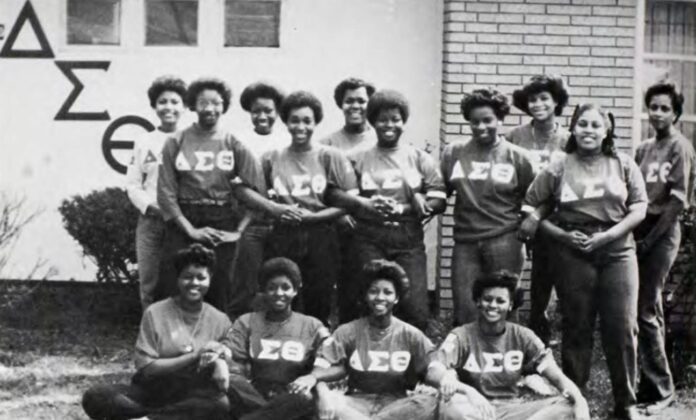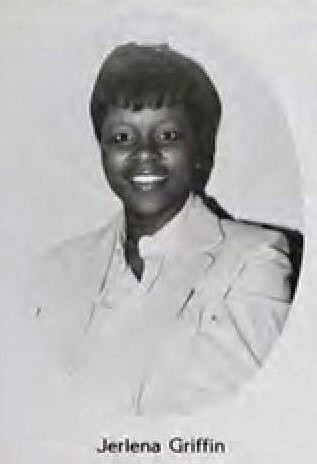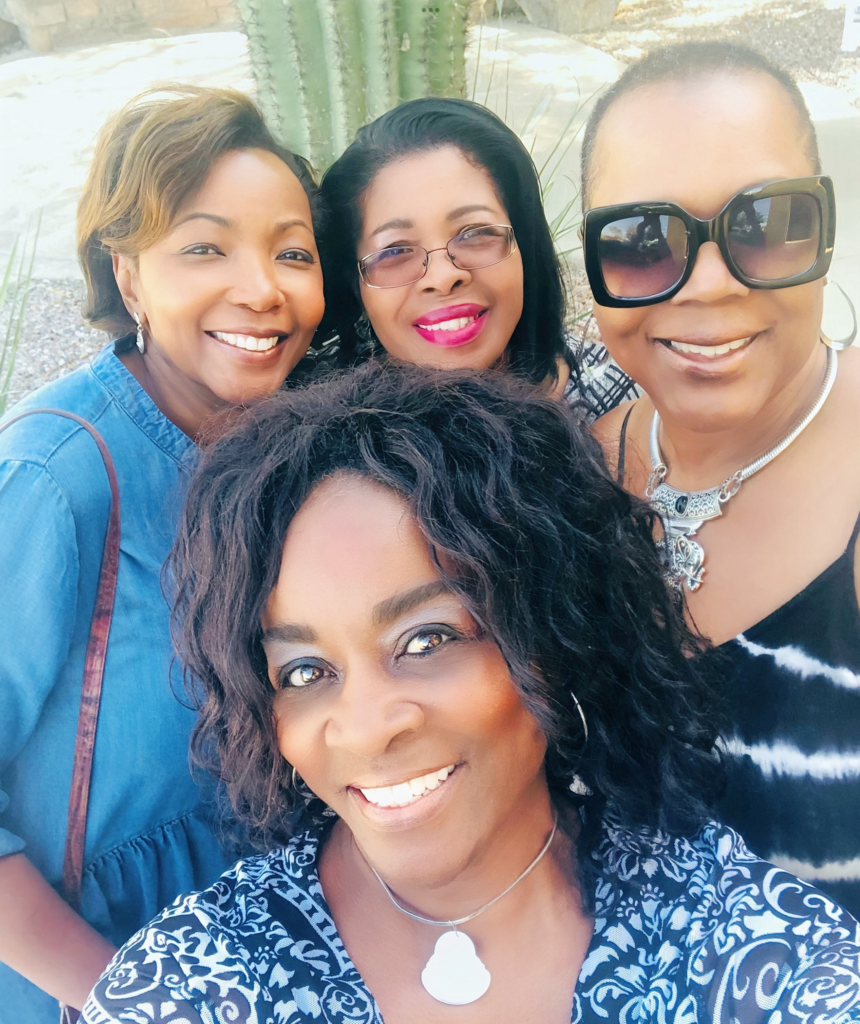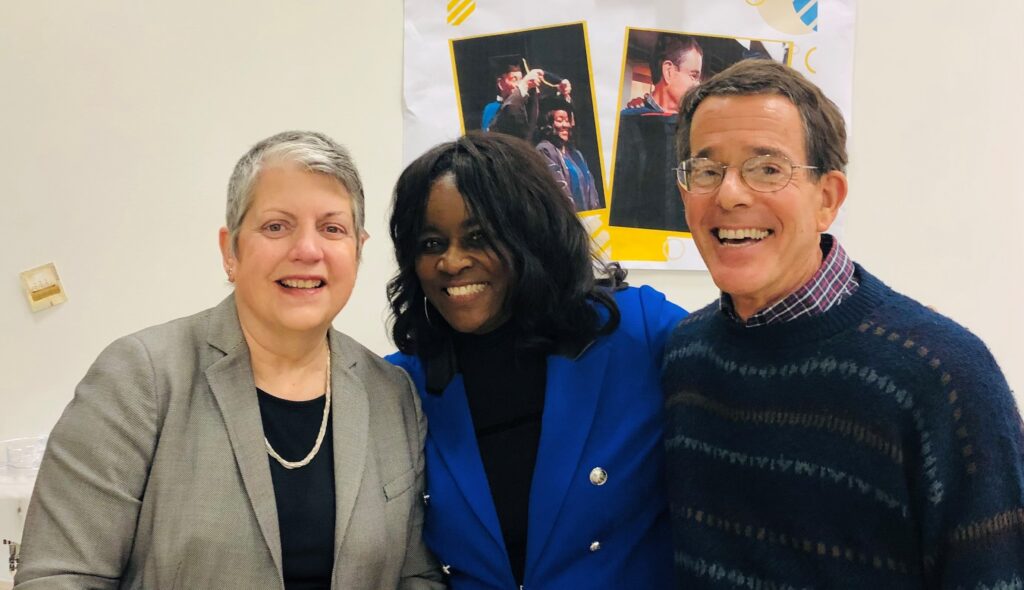
Dr. Jerlena Griffin-Desta’s experiences as a student at Mercer University led her to a career in higher education. Mercer nurtured her inner scholar and implementation skills, and she has poured those talents into her work to advance equitable policies and practices at colleges and universities.

Dr. Griffin-Desta remembers seeing a Mercer banner hanging in the office of her principal when she was in elementary school. Once she reached high school, Mercer was one among her top choices for college. The University’s prestige and size would ultimately lead her to enroll, making her the first Black student from Camden County to attend.
“I arrived in the fall of 1979, and I was pleasantly surprised at the number of African American students that came in that year with me,” said Dr. Griffin-Desta, who now lives in the North Bay, California, area with her husband. “I felt academically that I was in the right place. People are surprised at my knowledge about how to analyze or how to ask great questions. I always felt that I got that at a small liberal arts school.”
English professor George Espy, education professor Dr. Bobby Jones and sociology professor Dr. Catherine Meeks — who were among the first Black professors at Mercer — were “unequivocally responsible” for her academic success, helping her to navigate the challenges that came with being a first-generation college student, she said.

In addition, English professor Dr. Mary Wilder and Christianity professor Dr. Ray Brewster also had a great impact on her life. Together, these five professors showed her how to express herself.
“I felt like the whole world was opening up for me,” Dr. Griffin-Desta said. “I was affirmed in who I was becoming. I always felt I had in me this inquisitiveness and this search for knowledge. I learned about how to ask the tough questions and how to sit with the complication of the answers while trying to make a difference.”
She was active on campus as a member of Delta Sigma Theta sorority and the Organization of Black Students and a resident assistant. She also made lifelong friendships. She has stayed close with three of her sorority sisters, and they meet up for a retreat almost every year.
“I am so grateful for that foundation and that we’ve maintained it. If it wasn’t for Mercer, we wouldn’t have had that,” she said.
Dr. Griffin-Desta graduated from Mercer in 1983 with a bachelor’s degree in communication studies and a minor in English, and unsure of her next step, she applied to a program called Operation Crossroads Africa at the encouragement of Dr. Meeks. She had always wanted to travel, and students chosen for the program worked on community projects in various African countries.
Dr. Griffin-Desta was accepted to the program and assigned to Lesotho, but she needed $3,000 to cover her expenses. After meeting with Dr. Meeks, then-Mercer president Dr. Kirby Godsey agreed that Mercer would provide financial support.
“That’s why I’ve been giving back for so long,” Dr. Griffin-Desta said. “That was such a life-changing experience. I was in South Africa in ’83-’84, and it opened up my sense of global justice and my sense of understanding how we’re all connected in this world. At that time, that was a lot of money. The fact that my alma mater did that, that was so remarkable.”

For two summers, she served as a summer group leader in the Operation Crossroads Caribbean program. Then, having dreamt of living in California one day, she took a residential life position at the University of San Francisco after her Lesotho assignment, beginning a long and successful career in higher education.
For 30 years, she worked for the University of California system, including at University of California-Los Angeles; University of California-Berkeley, where she earned her master’s degree in education policy and Ph.D. in policy, organization, measurement and evaluation; and the Office of the President, where she was involved in system-wide policies and governance. She has spent the bulk of her career in public, large, level-one research institutions.
In 2019, she joined the team at Sonoma State University, which is part of the California State University System. Her current role is chief of staff to the president and vice president of strategic initiatives and diversity.
“As chief of staff, that’s what I do now: Make things happen,” she said. “My career has been about advancing equitable policies and practices in higher education. My work has been about taking societal aspirational goals as it relates to access and inclusion and making them work in higher education.”
College campuses are a fascinating setting to work, she said. They are “brave spaces” where students shouldn’t be afraid to discuss anything and where cultural discourse and dialogue are often shaped.
“Higher education gives us the spaces to test and question our values. Family history and values are fundamentally critical, but college is the place to think about those things. That’s what I love about the environment of the ecosystem of a college. You have people whose job it is to create and advance knowledge and protect its ability to be shared,” she said.










